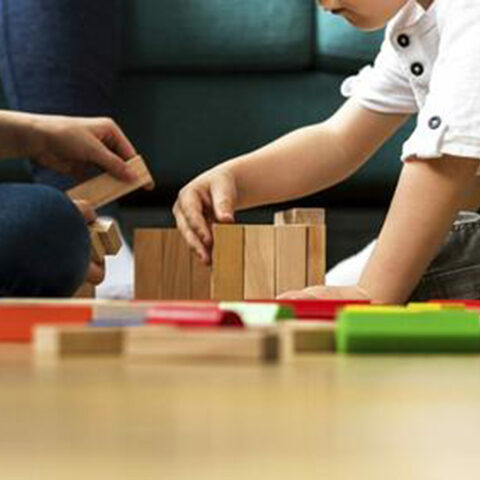
Could psychological testing benefit my child?
HOW DO WE APPROACH TESTING?
At the Center, we let parents know that testing can look different depending on your child’s and your family’s needs. We approach testing as a way to answer your questions, offer diagnostics, provide treatment planning, and help you relate to your child based on his or her uniqueness.
That’s why our answer to “When should I get testing for my child?” is often, “It depends.” We take a wholeperson approach to assessments because people are wildly complex.
We look at both psychological and academic needs. We want to make sure to individualize your child’s needs in the context of his or her life, and to make recommendations that reflect their unique personhood.
WHAT TYPES OF TESTING ARE AVAILABLE?
The Center may recommend and administer various types of tests for a child based on what we believe would most help him and your family.
Some of the categories of tests available include diagnostic evaluations, developmental diagnostic evaluations, and comprehensive educational evaluations.
Diagnostic Evaluations
These tests often seek to answer questions about your child’s behaviors at home and at school. They may help identify the times when your child can’t sit still or help determine why your child yells out in class. They may identify how often a child is having tantrums, or possible causes for abrupt behavior changes in teens.
These types of tests are focused on root causes of actions that parents and teachers are observing. These evaluations help a psychologist figure out the underlying causes of the emotions and behaviors that are affecting your child’s daily life.
At the same time, throughout diagnostic tests, we are looking at how your child’s particular personality plays a role in his current struggles. We are ultimately looking for the best ways to treat her areas of concern and to help you parent this child even more effectively.
Developmental Diagnostic Evaluations
These evaluations focus on younger children who may not be meeting developmental milestones, or may be demonstrating symptoms of autism, social communication disorders, or other developmental delays.
Questions that often lead parents to developmental diagnostic testing include:
- Why is my 2-year-old ignoring people when they talk to her?
- Why does my child not make eye contact?
- Why does my child stack toys but not play with toys?
- Why does my preschooler not play with friends?
- Why does my child scream and hit himself?
Developmental evaluations help us determine if these questions are related to typical variations in development, or if your child has an area of difference that would benefit from early intervention and services in the areas of speech, occupational therapy, applied behavioral analysis therapy (or ABA), or play therapy.
Comprehensive Educational Evaluations
In an educational evaluation, we provide a complete assessment of areas that may affect learning in an academic setting. These can address concerns about your child’s progress in reading, writing, or math. These tests can also assess social and emotional concerns that affect your child’s success at school. Often, parents have a combination of both types of concerns – academic and emotional.
Questions that often lead parents to educational evaluations include:
- My child is smart; why can’t she read at the level of her intellect?
- Why are we spending so much time on homework and studying with little return in grades?
- Does my child need more time for tests?
- Does my child have dyslexia?
- Is my child talented and gifted?
- If my child is talented and gifted, why is school such a struggle?
WE CAN HELP
At the Center, we believe in developing an individualized testing plan that reflects the needs of the child, each area of concern, and the needs of the family.
We start with a parent consultation where we learn more about your child, your family, and how certain issues may be affecting your child’s education and development.
Then, using your input, along with a psychologist’s expertise, we develop a testing plan designed to address your questions and concerns. We are seeking to learn more about your child’s gifts and challenges, and to make recommendations and plans for her care going forward.
After testing, our psychologists will work with your family, other treatment providers, and your child’s school to meet your child’s needs and your family’s needs through a comprehensive plan.
If you think your child may benefit from testing, I encourage you to talk with a licensed psychologist at the Center or somewhere else to learn more. Sometimes, simply understanding your child better – both strengths and areas for growth – can be an important step toward helping her be more successful in academic and social settings.
